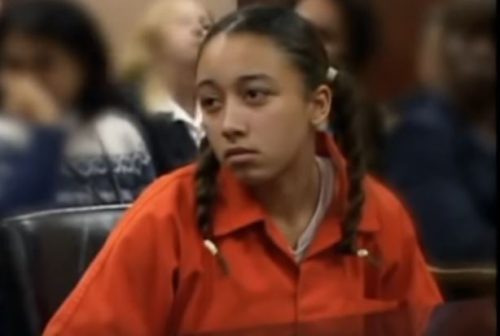 By Sarah Mehta
By Sarah Mehta
In 2006, Cyntoia Brown was sentenced to life in prison for shooting and killing a 43-year-old man who had picked her up for sex. At the time of the crime, she was 16 years old.
Cyntoia is now in her 20s, and her appeal is pending in the U.S. Court of Appeals for the Sixth Circuit. Last week, after a local Fox 17 news report on her case, celebrities like Rihanna took to social media to condemn the sentence and call for her release. The attention to this case is understandable and justified. Cyntoia had run away from home and was living with a pimp who had raped and abused her. The legal team handling Cyntoia’s appeal says she suffers from an alcohol-related neurodevelopmental disorder, a type of fetal alcohol syndrome that impairs brain development and that more recent testing found her to have the functioning level of a 13 or 14-year-old.
On Aug. 6, 2004, Johnny Allen, aged 43, picked Cyntoia up in his truck for sex and drove her to his home. According to court documents, she thought he was reaching under his bed for a gun so she pulled out a handgun from her own purse and shot him. The jury rejected her claim of self-defense and found her guilty of first degree murder; the trial court sentenced her to life in prison. Under Tennessee law, she won’t be eligible for parole until she has served 51 years in prison.
Cyntoia’s case is appalling and heartbreaking but her experience with the criminal justice system isn’t unique. Thousands of people in the United States are serving life and other extreme sentences 
for offenses they committed as children.
The United States remains the only country in the world that allows children to be sentenced to life without parole, though recent Supreme Court cases have significantly restricted this practice, reasoning that children age out of criminal activity and have greater capacity for reform. However, the court’s decisions have not meant automatic release for juveniles serving life without parole for homicides nor have they prevented states from sending thousands of children to prison for life with the (increasingly slim) possibility of parole.
The United States remains the only country in the world that allows children to be sentenced to life without parole.
ACLU research has found that in 12 states alone, over 8,000 people are serving a sentence of life or 40 or more years for a crime committed under the age of 18. In Texas, Colorado, and Nebraska, many individuals previously sentenced to juvenile life without parole must serve at least 40 years in prison before they are eligible for parole. In Tennessee, where Cyntoia is incarcerated, people serving life sentences may wait up to 60 years for their first chance for release. Rates for granting parole for people convicted of serious crimes — even if they were juveniles at the time of the crime —are low across the country. In Florida in 2015, for example, only 0.5 percent of juvenile lifers were granted parole. If denied parole, depending on state law, lifers can wait 10 or 15 years — or indefinitely — for another opportunity to seek release on parole.
Some people in the ACLU investigation have served over 40 years in prison; one was only 12 years old at the time of his crime. Like Cyntoia Brown, they were growing up and growing old in prison, waiting for a chance at parole. Sentencing young people to excessively long sentences means that they never get a chance to rebuild their lives, even when they have demonstrated their capacity for reform and rehabilitation.
Sarah Mehta is a researcher with the ACLU Human Rights Program






Her story is so sad and too common. The girl’s courage should have been applauded and instead this…
If and when human decency ever prevails on her behalf – there will never be any correction of this injustice. There is no amount of money or apologies that can buy back life, energy, vitality, potential that is wasted and eroded away in a prison cell. Same applies to people who wait in jails pending a trial.
Our system is awful. And yet there still seems to be a good size of people who balk at anyone unwilling to submit their lives to its potential for catastrophic failures.
If she were so brave and capable; whatever actions this girl took to break out of prison would be as justified as slaves fleeing plantations in the antebellum south. And like them, shed be hunted down and dragged back into her cell to serve a longer sentence. This is crazy.
I think there are a lot of problems here, our system does not do well at distinguishing between truly dangerous people and those who act due to abuse and damage.
Also I have just seen too many life sentences in cases that do not need to be life cases.
I definitely agree. In our own county I am baffled at the sentencing of Ajay Dev even if he WERE guilty vs. that of Brett Pedroia 😱😬